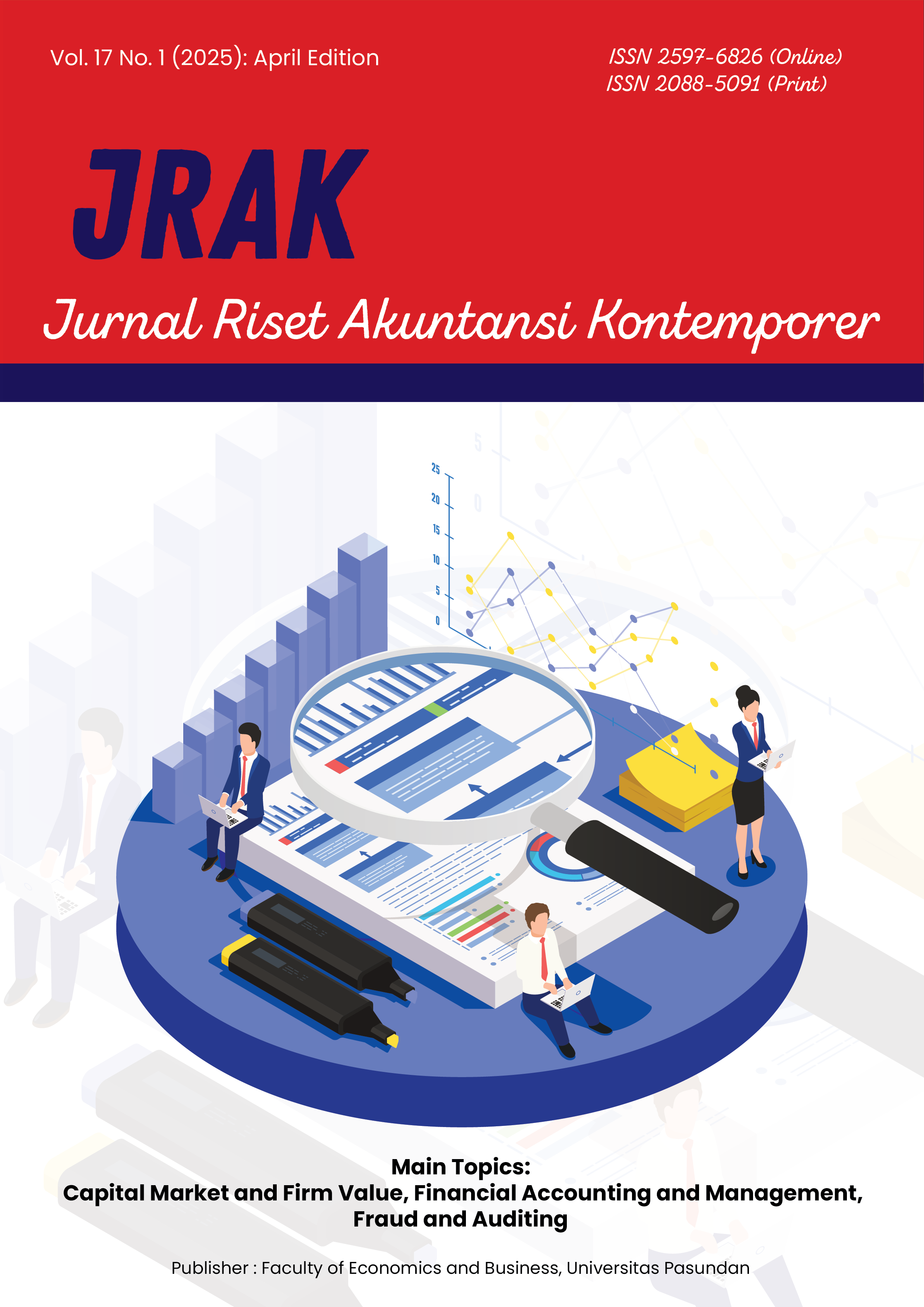CULTURAL INFLUENCE AND COMPLIANCE: MSME'S ADOPTION OF FAS MSME’S FOR FINANCIAL REPORTS
DOI:
https://doi.org/10.23969/jrak.v17i2.22508Keywords:
Perception of Benefit, Perception of Obstacles, Menyama Braya, Intention to Adoption FAS MSMES Financial ReportsAbstract
Many MSMEs in Bali are still unaware of the Financial Accounting Standards for MSMEs (FAS MSMEs), which are crucial for decision-making. Limited human resources hinder their ability to prepare structured financial reports. This study examines the influence of perceived benefits and obstacles on MSMEs' intention to adopt FAS MSMEs, with Menyama Braya as a moderating variable. Based on 200 MSME respondents using Moderated Regression Analysis (MRA), the findings indicate that perceived obstacles and Menyama Braya positively affect the intention to adopt FAS MSMEs, and Menyama Braya also strengthens the impact of perceived obstacles. However, perceived benefits have no effect, nor does Menyama Braya moderate their influence. To enhance adoption intentions, the government and MSME associations can provide training, incentives, and assistance to help MSMEs overcome barriers without diminishing their urgency. The role of Menyama Braya suggests that community-based approaches, such as peer support and group education.
Downloads
Downloads
Published
Issue
Section
License
Copyright (c) 2025 JRAK

This work is licensed under a Creative Commons Attribution-NonCommercial-ShareAlike 4.0 International License.

















